According to the schedule, on November 26, 2024, the National Assembly will consider and pass the amended Law on Value Added Tax (VAT). Dr. Le Dinh Thang, Chief Auditor of Sector II (State Audit) said that it is currently acceptable for households and individuals doing business with a revenue of 200 million VND/year or less to not have to pay VAT, but it needs to be considered for adjustment later.
Paying tax on revenue over 200 million VND/year is appropriate.
According to the schedule, on November 26, 2024, the National Assembly will consider and pass the amended Law on Value Added Tax (VAT). Dr. Le Dinh Thang, Chief Auditor of Sector II (State Audit) said that it is currently acceptable for households and individuals doing business with a revenue of 200 million VND/year or less to not have to pay VAT, but it needs to be considered for adjustment later.
 |
| Paying tax on revenue over 200 million VND/year is appropriate. |
Before the National Assembly passed the Law on VAT, there were still many opinions that the revenue level of less than 200 million VND/year applied when considering VAT exemption for households and individual businesses was still low. What is your opinion?
Low or high needs to have data for comparison, have scientific basis for evaluation, not subjective, emotional judgment.
According to the Draft Law on VAT to be passed by the National Assembly, there are 26 groups of goods and services that are not subject to tax, are not deductible, and are not eligible for input tax refunds (except in cases where a tax rate of 0% is applied), including goods and services of households and individuals with annual revenue of VND 200 million or less. The level of VND 200 million is acceptable because this level is not fixed, but the law stipulates that in case the consumer price index (CPI) fluctuates by more than 20%, the Government shall submit to the National Assembly Standing Committee to adjust the revenue level in accordance with the socio -economic development situation of each period.
This is an open provision, because if a specific level is set in the law, then when changes are needed, the law will have to be amended. Even if only one article or clause is amended according to the simplified procedure, it will take a lot of time, because the National Assembly only meets twice a year (except for extraordinary sessions). This is also time-consuming because it must fully comply with the procedures prescribed by the Law on Promulgation of Legal Documents. Meanwhile, the National Assembly Standing Committee meets every month; moreover, the resolution-making process is much simpler than that of law-making. When socio-economic conditions change, the VAT revenue of households and individual businesses can be increased accordingly.
But according to calculations, the profits that households and individuals doing business earn are only 25-30%, which means that with a revenue of 200 million VND, the profit of about 50 million VND/year is low. What do you think?
VAT is an indirect tax, consumers pay for goods and services, sellers and service providers only collect and should pay into the state budget, but the State has left it for small businesses (revenue under 200 million VND/year) out of humanity.
The current Personal Income Tax Law also stipulates that households and individuals doing business with revenue of 100 million VND or less are exempt from tax.
I think that when the amended Law on VAT comes into effect, the Government needs to promptly adjust the threshold for personal income tax payment for households and individual businesses from 100 million VND to 200 million VND/year for consistency.
Do you still think that the VAT threshold for households and individuals doing business with revenue of 200 million VND or more is appropriate?
The revenue level may be suitable for this industry but not for another industry; suitable for this area but not for another, especially not suitable for the Government's flexible economic and social management. Therefore, it is best to leave it to the Government to make specific regulations.
I think that if this regulation is assigned to the Government, the Government will have specific and detailed regulations in areas with difficult and especially difficult socio-economic conditions.
For the above locations, this level can increase to 300-400 million VND, thereby creating conditions for households and individual businesses to reduce prices of goods and services to serve the people.
For areas that need encouragement such as coastal tourism or homestays in the midlands and mountainous areas that need to be encouraged to develop, the level can be raised to 500 million VND or even higher to encourage people to participate in business, creating conditions to help households and individuals do business to lower service prices, thereby increasing competitiveness.
Millions of households and small businesses do not contribute much to the state budget, while tax management costs are very high, so is tax collection effective for this group, sir?
According to current regulations, the tax rate for commercial activities of households and individuals doing business is 1.5% of revenue, of which 1% is VAT and 0.5% is personal income tax. The tax rate for service provision is 7% of revenue, of which 5% is VAT and 2% is personal income tax.
The above tax rates are not high, because the lowest personal income tax rate for regular income is 5% and the highest is 35%; the general VAT rate is 10% and the general corporate income tax rate is 20%.
This tax rate has been carefully calculated by the Ministry of Finance to ensure both revenue generation and to encourage people to participate in business; tax administration costs are also much lower than the tax collected for the state budget. Moreover, with the strong application of information technology, tax administration costs will increasingly decrease. More importantly, tax collection is to ensure the principle that all organizations, individuals, and businesses with revenue and income have obligations to the state budget; to create a habit of paying taxes for people when participating in business and having income.
Source: https://baodautu.vn/viec-phai-nop-thue-voi-muc-doanh-thu-tren-200-trieu-dongnam-la-phu-hop-d230787.html















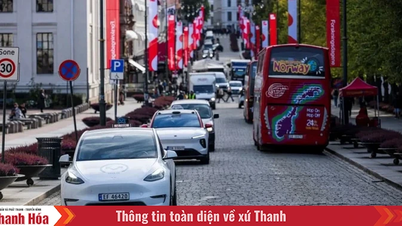

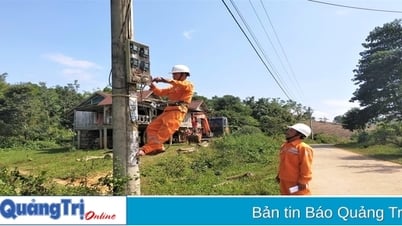





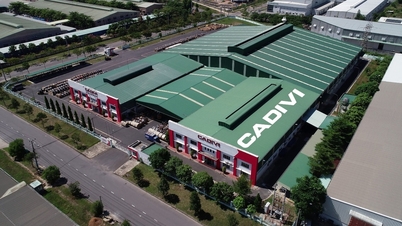

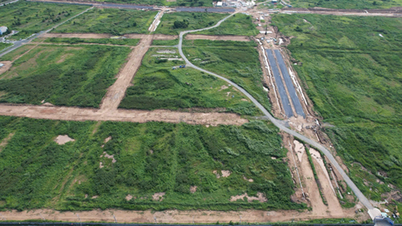
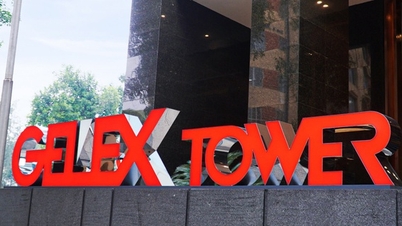

















































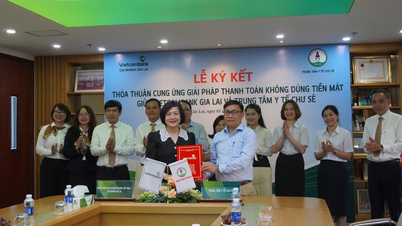







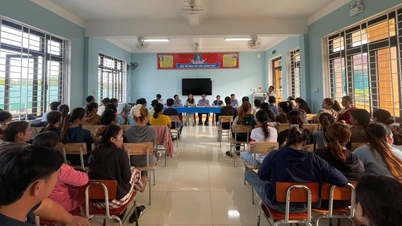












Comment (0)